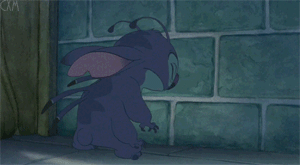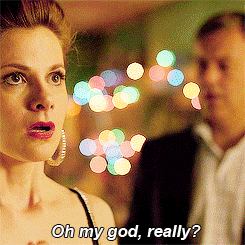It’s no secret I spend a lot of time talking about social issues in geek culture/fandom. Partly it’s because I’m genuinely fascinated by the social dynamics on display, and as someone whose identity straddles a lot of different lines of privilege and marginalization, a lot of those issues affect me and people I care about. But when it comes right down to it, I spend a lot of time talking about social issues in geek culture/fandom because it seems like there’s a never-ending stream of incidents reminding us why we still need to have these discussions.
Last year’s series of hiccups over the Science Fiction Writers of America (SFWA) Bulletin were a massive facepalm, but it was heartening to see SFWA leadership acknowledge they dropped the ball and were committed to relaunching the Bulletin with better editorial oversight. Unfortunately, the latest kerfuffle, triggered by Dave Truesdale’s petition in response to the mere idea that there will be changes to editorial procedure in the Bulletin, is another example of the roadblocks to progress that are often thrown up in response.
Enough’s been written about the petition that I don’t really need to rehash the particulars, but it’s worth reading CC Finlay’s explanation of why this is not about censorship, John Scalzi’s advice on petitions, and Jim Hines’s summation (Natalie Luhrs’s analysis of Truesdale’s original petition is linked above). Suffice to say, while there are some names that I’m not surprised to see on the final petition, I’m utterly disappointed to see that some of the favorite authors of my youth, particularly Mercedes Lackey, have decided to hang their hats on that side of the aisle. Many of the names I’m only passingly familiar with, and having seen what they’ve had to say:
What’s the difference between “I’m offended that you’re sexist, you have to change?” and “I’m offended that you’re gay, you have to change?” No, the two are not the same, but what is similar in the two sentences is the idea that one person or group has the right and authority to define another person’s thinking or behavior… Part of the responsibility of freedom is putting up with the bullshit of other people. — David Gerrold
One would hope that readers of SFWA’s magazine would not take offense at anything they read in a publication that is intended to help them in the pursuit of their professional careers, but the appropriate way of objecting to such offensive material would be to write a letter of protest to the magazine, not to force the editor to be overruled in advance by a committee that determines what might be deemed offensive. — Robert Silverberg
… of course, what one group deems offensive another may not. I would prefer an open BULLETIN that let me see everything and decide for myself. — Nancy Kress
My signing the petition was on a pure First Amendment basis as I noted. In general, the US has backslid in terms of press freedom in recent years and people self-censor to an extraordinary degree. This is not healthy. I support full freedom of expression and believe SFWA should uphold this in its publications, as a writer’s organization. — Amy Sterling Casil
… I’m really not all inclined to familiarize myself any further with their work. Time, money and energy are in short supply these days and I’d frankly rather spend what I have on authors who aren’t giving the Golden Mean and False Equivalency fallacies a workout and don’t find it ok to leave the basic humanity of women and other minorities up as a “matter of debate.” Because let’s be clear: That is exactly what is being advocated as something to be left “open” for people to “see and decide for themselves.” The series of missteps that led to the Bulletin being temporarily shuttered was not over “open dialog” about issues like online vs print publishing. Instead, what was up for “open dialog” was the general humanity of women and minorities, in the form of debating whether or not treating them with basic respect was a matter of “censorship” and encroaching “fascism” perpetrated by “thin-skinned” PC hordes.
The principle of “free speech” doesn’t require that people should just “suck it up” when it comes to enduring language and treatment whether it’s intentional or not that places them as “less than.” People should not have to “debate” that they deserve to be judged on the quality of their work, rather than whether or not they’re “easy on the eye.” If what’s “chilled” as a result of the new editorial practices put in place at the Bulletin (which according to SFWA President Stephen Gould, don’t involve any secret cabal of advisors), is language that continues to demean and Other people, and discourages women and other minorities from wanting to join an organization like SFWA, I can’t bring myself to see that as a bad thing. “Free speech” after all, doesn’t cover yelling “FIRE!” in a crowded room for shits and giggles, nor does it prevent private organizations from placing minimum standards of conduct that members are expected to adhere to.
Whether or not people like it, a lot of this discussion is taking place out in the open, where people don’t have to necessarily be members of SFWA to know what’s being said by the membership. As difficult as it’s been to read a lot of these exchanges, I have to hope that the vehemence and vitriol being leveled in the name of defending the status quo means that progress is being made. People are no longer silent and accepting of the casual bigotry and Othering that passed for “normal” in the halcyon days of fandom. As uncomfortable as that’s making many of us, I can’t be nostalgic for a time when someone could, with impunity, treat me as “less than” because of my gender or the color of my skin, and paint me as the aggressor if I spoke up.
Besides, these Defenders of Free Speech have already gone and spoiled the super secret plan and I should just fess up to being one of Mary Robinette Kowal’s many “minions worshipping at her agenda”* anyway. I mean, why else would I be running around in this yellow Minion suit?
*Full disclosure: While I initially became familiar with Mary through her posts about harassment and sexism in fandom, I’m now pleased to be working with her on a number of projects, and happily count her as a friend.
SIDENOTE: Just when I had finished writing this entry, I saw John Scalzi’s latest post about Sean Fodera’s threat to sue Scalzi and 1,200 people for linking to the Daily Dot’s latest article detailing some of the more ugly aspects of the Truesdale petition, including some truly vile comments about Mary. I know I said it’s a never-ending stream, but this is ridiculous. I just wish this wouldn’t keep happening so damn often, because it’s not like we’re lacking reasons to talk about problems like sexism in geek culture/fandom!





I don’t know if you know the context here for David Gerrold, but he is gay. That may shift the meaning of his quote for you. Or not.
And some of the people who signed the recent petition are women. What is your point?
Yeah, I have to say – if anything that just makes that quote worse. There are gay men that are not allies for women – and this quote certainly makes him sound like one of them.
I think that’s partly what’s so frustrating about people like Gerrold. I don’t think they actually think it’s ok for people to be subjected to discriminatory treatment. But for whatever reason, they’re not seeing how problems like the series of issues that led to the Bulletin being shuttered contributes directly to problems like the sexism and misogyny that women have to deal with and they ostensibly stand against. It’s all very frustrating.
I was aware of Gerrold’s sexual orientation, but in all honesty, it doesn’t change anything. My problem with his comment is that it falsely equates “criticizing sexism” with “criticizing homosexuality” which are two very different things and conflating them is a fallacious dodge. Sexism is something that causes demonstrative harm and is behavior that can be altered; homosexuality does not, in and of itself, cause harm, nor is it a “behavior” so much as a part of who a person *is*. Sexism is not an integral part of someone’s identity, while homosexuality is. And if someone *does* see sexism as being a necessary part of who they are… well, I really have nothing to say to that.